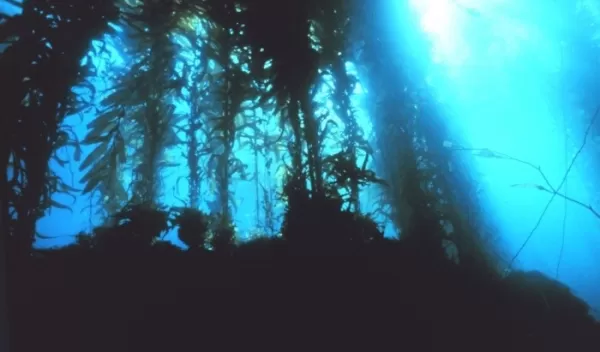
West Coast Kelp Forest Ecosystems At Risk
The West Coast's richly diverse kelp-forest ecosystems, which extend from Alaska to Baja, provide both a beautiful setting for scuba diving--the kelp itself is a giant algae that reaches heights of up to 120 feet--and a multitude of opportunities for commercial and recreational fishing.
Unfortunately, as many studies have shown, these ecosystems are highly vulnerable to overfishing, as well as to fertilizer and sewage runoff from the shore.
Now, in the first study to compare the two variables rather than looking just at one or the other, scientists at the University of California at Santa Barbara have concluded that overfishing is by far the greater risk.
The researchers are affiliated with the university's National Center for Ecological Analysis and Synthesis (NCEAS), which is funded by the National Science Foundation. They published their work in the May 26, 2006, issue of the journal Science.
In the study, the research team used National Park Service data from four years of marine life surveys on 16 kelp forest sites around the Channel Islands off the coast of central California. Data had been collected on 46 different species.
The scientists then matched those surveys with data provided by SeaWiFs, a satellite monitoring project that photographs and analyzes ocean color for information about sea life. SeaWiFs data can be used to estimate nutrient levels in the ocean.
Their comparisons did find an effect on the kelp-forest ecosystems from fertilizer run-off and sewage overflow, both of which increase the amount of organic material in the near-shore ocean.
But the researchers found a much stronger effect when predator species, such as rockfish, are removed from the top of the food web. The immediate result is an increase in the species they normally prey upon, such as snails and barnacles. And since many of these prey species are herbivores that eat kelp, the net result is a decline in the amount of kelp, together with a change in how kelp forests look and a shift in the balance of species that live there.
"Kelp forests are extremely sensitive," said scientist Ben Halpern of NCEAS. "If you remove some of the predators, there's an effect on the entire ecosystem."
-- Cheryl Dybas
